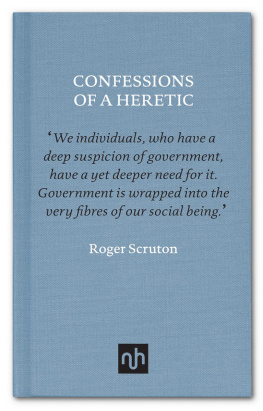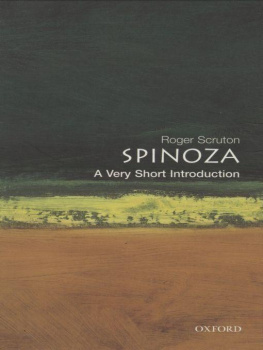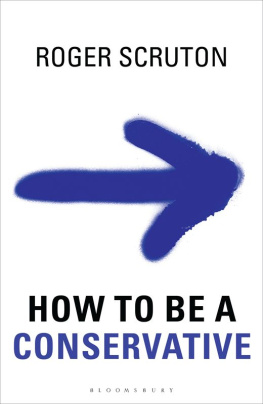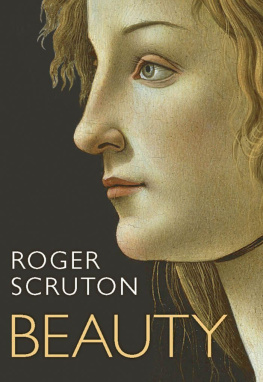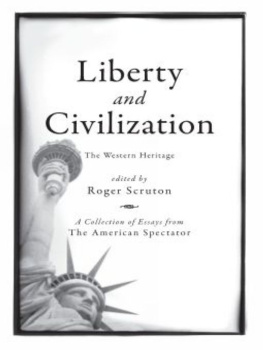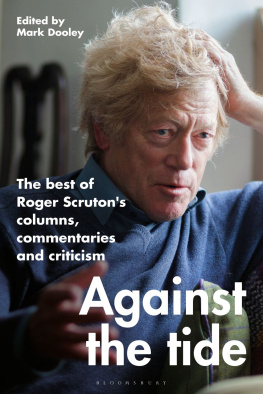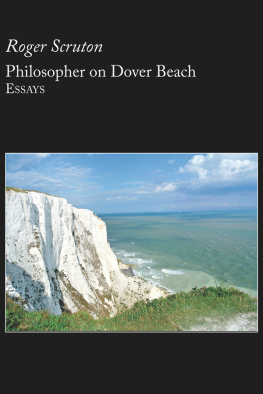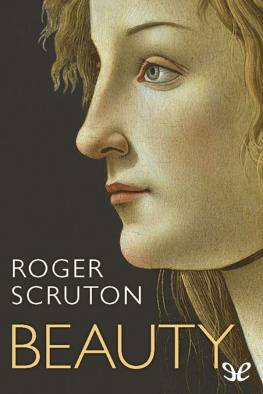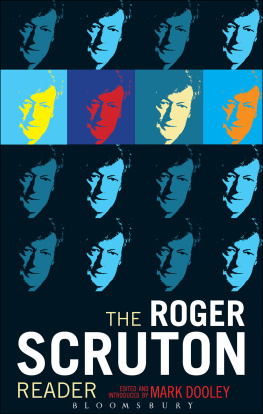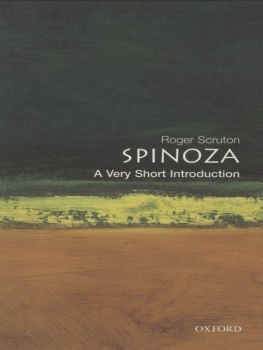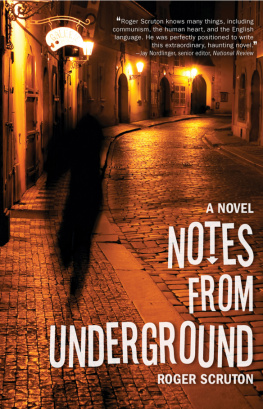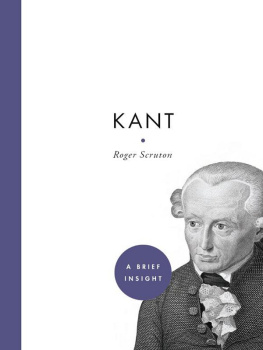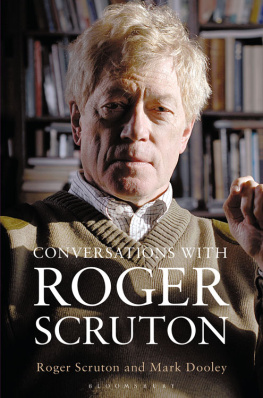Roger Scruton - Gentle Regrets: Thoughts From a Life
Here you can read online Roger Scruton - Gentle Regrets: Thoughts From a Life full text of the book (entire story) in english for free. Download pdf and epub, get meaning, cover and reviews about this ebook. year: 2006, publisher: Continuum, genre: Detective and thriller. Description of the work, (preface) as well as reviews are available. Best literature library LitArk.com created for fans of good reading and offers a wide selection of genres:
Romance novel
Science fiction
Adventure
Detective
Science
History
Home and family
Prose
Art
Politics
Computer
Non-fiction
Religion
Business
Children
Humor
Choose a favorite category and find really read worthwhile books. Enjoy immersion in the world of imagination, feel the emotions of the characters or learn something new for yourself, make an fascinating discovery.

- Book:Gentle Regrets: Thoughts From a Life
- Author:
- Publisher:Continuum
- Genre:
- Year:2006
- Rating:5 / 5
- Favourites:Add to favourites
- Your mark:
- 100
- 1
- 2
- 3
- 4
- 5
Gentle Regrets: Thoughts From a Life: summary, description and annotation
We offer to read an annotation, description, summary or preface (depends on what the author of the book "Gentle Regrets: Thoughts From a Life" wrote himself). If you haven't found the necessary information about the book — write in the comments, we will try to find it.
Gentle Regrets: Thoughts From a Life — read online for free the complete book (whole text) full work
Below is the text of the book, divided by pages. System saving the place of the last page read, allows you to conveniently read the book "Gentle Regrets: Thoughts From a Life" online for free, without having to search again every time where you left off. Put a bookmark, and you can go to the page where you finished reading at any time.
Font size:
Interval:
Bookmark:
Thoughts from a life
ROGER SCRUTON

How did you come to be what you are? This question is often asked of me, and from time to time I have found myself revisiting the past in an attempt to answer it. These autobiographical excursions have usually formed part of some larger intellectual enterprise and, in bringing them together in this book, my intention has been not to dwell on them, but to understand the concrete beginnings of some fairly abstract ideas.
Wisdom is truth that consoles. There is truth without wisdom, as we know from the many mad scientists who are running loose in our world. And there is consolation without truth, as we know from the history of religion. Whatever its defects, my life has enabled me to find comfort in uncomfortable truths. Whether this counts as wisdom I do not know; but it encourages me to provide some of the personal background from which my worldview arose.
I have described one or two influential friends and companions, mentioned others, but in no way attempted to name all the people who have been important to me. More people than I deserve have offered me love and friendship, and if I do not mention them by name, it is because this book is not a record of my ducation sentimentale but an attempt to explain a particular conservative outlook.
Some of the material that follows has been adapted from previously published articles, and I am grateful to the editors of Books and Company, City Journal, BBC Music Magazine, New Criterion and Nexus for the relevant permissions.
Malmesbury, January 2005
How I Discovered Books
Although my father was a teacher, books did not play a large part in our home. Those that could be found in the house were of a useful or improving kind: encyclopaedias, the Bible, Palgraves Golden Treasury, some gardening books, the Penguin Odyssey, and memoirs of the Second World War. By way of shielding herself from my fathers gloom, my mother dabbled a little in exotic religions, which meant that pamphlets by Indian gurus would from time to time occupy the front room table. But neither she nor my father had any conception of the book, as a hidden door in the scheme of things that opens into another world.
My first inkling of this experience came from Bunyan. The year was 1957. I was 13, a day boy at our next-door grammar school, where I learned to distinguish books into two kinds: on the syllabus; and off it. Pilgrims Progress must surely have been off the syllabus; nothing else can account for the astonishment with which I turned its pages. I was convalescing from flu, sitting in the garden on a fine spring day. A few yards to my left was our house a plain whitewashed Edwardian box, part of a ribbon development that stretched along the main road from High Wycombe halfway to Amersham. To the right stood the neo-Georgian Grammar School with its frontage of lawn. Opposite was the ugly new housing estate that spoiled our view. I sat in a nondescript corner of post-war England; nothing could conceivably happen in such surroundings, except the things that happen anywhere: a bus passing, a dog barking, football on the wireless, shepherds pie for tea.
And then suddenly I was in a visionary landscape, where even the most ordinary things come dressed in astonishment. In Bunyans world words are not barriers or defences, as they are in suburban England, but messages sent to the heart. They jump into you from the page, as though in answer to a summons. This, surely, is the sign of a great writer, that he speaks to you in your voice, by making his voice your own.
I did not put the book down until I had finished it. And for months afterwards I strode through our suburb side by side with Christian, my inner eye fixed on the Celestial City.
Two years later, when I was studying A-level science, my parents decided to move. They had found a house in Marlow, smaller, quieter and quainter than Amersham Road. The owners a retired couple called Deas who were emigrating to Canada drove over to discuss the deal. I was left sitting in the same spot in our garden, drinking tea with their son.
Since Bunyan, few books off the syllabus had passed through my hands. Nevertheless, I had heard rumours of the artistic temperament, and something about Ivor Deas made me suspect that he suffered from this obscure but distinguished ailment. He was a bachelor of some 40 years, still living with his parents. His face was pale and thin, with grey eyes that seemed to fade away when you looked at them. His alabaster hands with their long white fingers; his quiet voice; his spare and careful words; his trousers, rubbed shiny at the knees; and his Adams apple shifting up and down like a ping-pong ball in a fountain all these seemed totally out of place in our suburb and conferred on him an air of suffering fragility that must surely have some literary cause. He sat in silence, waiting for me to speak. I asked him his occupation. He responded with an embarrassed laugh.
Librarian, he said, and I looked at him amazed. To think of it a real librarian, in our garden, sitting over a cup of tea! What could I say to him? There was an uncomfortable silence as I searched my mind for topics. Mozart was my latest passion, and eventually I asked the librarian if he knew Don Giovanni, from which opera I had just acquired a long-playing record of extracts. He looked at me for a moment, eyes wavering, neck wobbling, hands clutching his knees. Then suddenly he began to speak, quietly, almost tonelessly, as though confessing to some dreadful crime.
Of course its a conundrum, isnt it such a perfect work of art, not a note or a word out of place, and yet Mozart feels free to add two arias, just like that, because the tenor asks for them! Purists would cut these arias: they hold up the action, destroy the artistic integrity. But music like Dalla sua pace would you remove such a jewel just because well, I mean, just because it stretches the crown? So to speak.
Having delivered himself of this weighty utterance he stared down sadly into his teacup, a posture that he maintained in silence until his parents emerged from the house. I was stunned by his words. No track on the treasured LP had stirred me more deeply than Dalla sua pace, and the thought that something so beautiful could also be a problem, that a composer might actually think of adding or subtracting it for the sake of the whole, filled me with an astonished sense of the labour, the complexity, the sheer holiness of art. As they were leaving he turned to me and said
I hope you enjoy Marlow library. I worked hard on it.
And will you still be there? I asked, astonished to have met not only a librarian, but a town librarian.
He gave me a frightened look.
Oh no. I shall be going with them, he nodded over his shoulder, to Canada.
Come along, Ivor, his mother shouted. She was a large, formidable-looking lady, with permed grey hair and layers of woollen clothing in maroon and mauve. With a nod and a gulp the librarian disappeared into the back of the family car, and that was the last I saw of him.
But it was not the last of his influence. In those days immigration from Britain was encouraged by the Canadian government, which subsidized the cost. Mrs Deas was able to take her furniture and knick-knacks, down to the last Bambi on the mantelpiece. But, as she explained to my mother, Ivors books would cause them to go over the weight limit. So would we mind if they were left behind? If we had no use for them they could always be given to the RSPCA.
Font size:
Interval:
Bookmark:
Similar books «Gentle Regrets: Thoughts From a Life»
Look at similar books to Gentle Regrets: Thoughts From a Life. We have selected literature similar in name and meaning in the hope of providing readers with more options to find new, interesting, not yet read works.
Discussion, reviews of the book Gentle Regrets: Thoughts From a Life and just readers' own opinions. Leave your comments, write what you think about the work, its meaning or the main characters. Specify what exactly you liked and what you didn't like, and why you think so.


